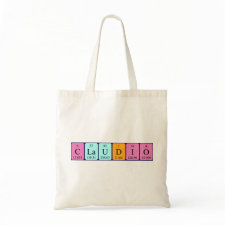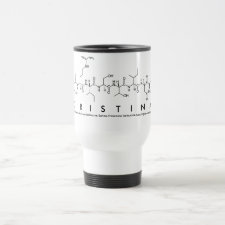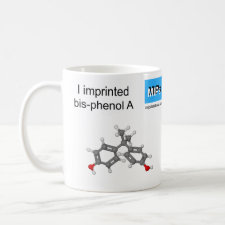
Authors: Baggiani C, Baravalle P, Giovannoli C, Anfossi L, Giraudi G
Article Title: Molecularly imprinted polymer/cryogel composites for solid-phase extraction of bisphenol A from river water and wine.
Publication date: 2010
Journal: Analytical and Bioanalytical Chemistry
Volume: 397
Issue: (2)
Page numbers: 815-822.
DOI: 10.1007/s00216-010-3591-1
Abstract: Abstract: Superporous monolithic hydrogels (cryogel monoliths) are elastic, sponge-like materials that can be prepared in an aqueous medium through a cryotropic gelation technique. These monoliths show interesting properties for the development of high-throughput solid-phase extraction supports to treat large volumes of aqueous samples. In this work, a cryogel-supported molecularly imprinted solid-phase extraction approach for the endocrine disruptor bisphenol A (BPA) from river water and wine samples is presented. An imprinted polymer with molecular recognition properties for BPA was prepared in acetonitrile by thermal polymerization of a mixture of 4,4'-dihydroxy-2,2-diphenyl-1,1,1,3,3,3-trifluoropropane as a mimic template of BPA, 4-vinylpyridine and trimethylolpropane trimethacrylate in a molar ratio of 1 + 6 + 6. Fine imprinted particles (<10 μm) were embedded in a poly-acrylamide-co-N,N'-methylenbisacrylamide cryogel obtained by ammonium persulfate-induced cryopolymerization at -18 °C. The resulting monolithic gel was evaluated for its use as a sorbent support in an off-line solid-phase extraction approach to recover BPA from dilute aqueous samples with minimum pre-loading work-up. The optimized extraction protocol resulted in a reliable MISPE method suitable to selectively extract and preconcentrate BPA from river water and red wine samples, demonstrating the practical feasibility of cryogel-trapped imprinted polymers as solid-phase extraction materials
Template and target information: 4,4'-dihydroxy-2,2-diphenyl-1,1,1,3,3,3-trifluoropropane, bisphenol A, BPA
Author keywords: bisphenol A, molecularly imprinted polymer, Cryogel, Solid-phase extraction, water analysis, wine analysis



Join the Society for Molecular Imprinting

New items RSS feed
Sign-up for e-mail updates:
Choose between receiving an occasional newsletter or more frequent e-mail alerts.
Click here to go to the sign-up page.
Is your name elemental or peptidic? Enter your name and find out by clicking either of the buttons below!
Other products you may like:
 MIPdatabase
MIPdatabase









